About Us
- Ivane Javakhishvili Tbilisi State University
- Georgian Institute of Public Affairs
- Yerevan State University
- Russian-Armenian (Slavonic) University
- Khazar University
- Baku Engineering University
- University of Oldenburg
- University of Graz
- University of Alicante
- World University Service (WUS) Austria
Ivane Javakhishvili Tbilisi State University
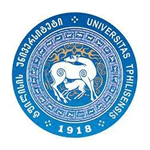
Ivane Javakhishvili Tbilisi State University was founded in 1918. Today it is the largest university in Georgia with 6 enlarged academic units and about eighteen thousand students. There is up to 800 fulltime and up to 900 part-time academic staff at Ivane Javakhishvili Tbilisi State University. In May, 2005 Georgia joined the Bologna process. Major novelties were introduced in Tbilisi State University.
Ivane Javakhishvili Tbilisi State University is the symbol of civilization, democracy and identity of the Georgian state; its goal is to provide students with the best possible education and promote their national thinking, as well as to integrate into a uniform European educational and scientific space.
To maintain high standards achieved during its century-old existence, TSU strives to be the best in both research and educational spheres. As the leader of Georgia’s higher education, TSU has assumed a huge mission – to maintain, create and disseminate education. TSU provides courses in the fields of Law, Economy, Social and Political Sciences, Humanities, Medical Sciences, Exact and Natural Sciences on all three levels, BA, MA and PhD.
Ivane Javakhishvili Tbilisi State University is a member of several professional associations and networks, which allows the university to enhance its administrative policies and practices and to position itself as a strong player in the area of higher education internationally. These cooperative networks strengthen academic and cultural relations among member universities and facilitate the search for new partners. Membership to these networks and associations reinforces academic and cultural ties between universities. More importantly, such networks and associations serve as channels for communication to exchange research developments and to disseminate information about academic exchanges and conferences for university faculty. Below is a list of university associations to which TSU belongs and a description of their organizational function:
- European University Association
- EUA Council for Doctoral Education (EUA-CDE)
- Black Sea Universities Network
- The European Network for Quality Assurance in Higher Education
- Agence Universitaire De la Francophonie
- International Association of Universities
- MAGNA CHARTA OBSERVATORY
- Romualdo Del Bianco Foundation
Tbilisi State University coordinates or is represented as partner in a number of Erasmus Mundus, Tempus, FP 7-Marie Curie Actions and Melvana Exchange Program. The most remarkable Project in the field of Migration being coordinated by TSU within the framework of Tempus program is: “Migration and Higher Education Developing Skills and Capacities”. The project is important not only from the stand point of developing research and international network of TSU in the field of Migration Management but also from the perspective of the whole country.
Being on the crossroads of Western Asia and Eastern Europe, Georgia is attractive for migrants from neighbouring countries what puts the challenge of managing migration processes on the top agenda of the daily work of the country. Tbilisi State University acts as key player in researching the overall process of migration regulation of Georgia. Migration Competence Centre (MCC) of Tbilisi State University being established with financial support from European Commission serves as not only the main migration oriented research unit of TSU, but also is represented as primary focal point of the Government of Georgia within TSU to consult on diverse dimensions of migration regulation. Because of the key role of MCC all relevant leading experts in the field of Migration are attached to the centre and its MA program in Migration Management.
Georgian Institute of Public Affairs
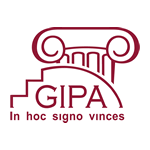
Georgian Institute of Public Affairs (GIPA) is the premier university in Georgia and a national leader in developing the best practices in teaching Public Administration and Good Governance, International Law, Political Science and International Relations, Journalism and Media Management, Economics and Business Sciences, Social Psychology and related fields. Our professors and their research and publications significantly affect the content of discourse and debates on key issues of political, economic, and social development of the country.
We are moderately sized but growing university – we currently have around 1000 students, about third of them in graduate programs.
We have extensive experience of successful international partnerships. As GIPA was established by the active participation of the United States Government 20 years ago we have enjoyed exclusive ties with American universities – University of Georgia, South Carolina University, American University, George Mason University, Troy University, Chapman University and some others continue to be our partners today, while cooperation with some of them stretches back to our earlier years. In recent years we have been actively pursuing partnerships with universities from the countries of the European Union. We already have an operating exchange programs with Wroclaw University in Poland and Massaryk University in Czech Republic.
In 2012-2015 Georgian Institute of Public Affairs participated in a project for “Migration and Higher Education – Building Skills and Capacity” funded by the European Commission (TEMPUS program). At the end of the project Master’s degree program (joint degree with Tbilisi State University) in Migration Studies was established. Foundation of a National Migration Competence Center at Tbilisi State University was another outcome of the project.
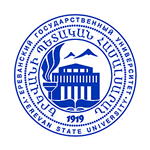
Faculty of Sociology at YSU stems from Applied Sociology Department which has been functioning since 1986 and is one of the first Sociology departments in the post-soviet space. It follows major trends in Higher Education, as well as domestic and regional market demands, and has 5 major teaching and research directions: Theory and Applied Sociology, Migration Studies, Conflict Studies, Social Work and Public Administration,and Communication Studies. Since the collapse of the Soviet Union in 1991 when new waves of migration started and included Armenia as a country which has long history of migration and one of the biggest Diaspora in the world concerning its proportion with the country’s population, the Faculty made migration issues one of its main study and research directions. Since that Faculty of Sociology at YSU has managed national and regional research projects on migration issues (with partner institutions from the US and the EU countries, from Russia,Georgia, Ukraine, etc.) As a result of implementation of the Tempus Project No. 517002-TEMPUS-1-2011-1-GE-TEMPUS-JPCR (2012-2015), the new Master program on Conflict and Migration studies was established, registered and implemented at the Faculty, as well as Migration Competence Center (http://mcc.ysu.am/) was created as structural unit of the Faculty. Currently we have the second year graduates from the program, professional network of specialists and teaching staff, as well as institutional capacities equipped with library resource and computer techniques for both academic and research activities.
Russian-Armenian (Slavonic) University
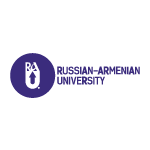
Russian-Armenian (Slavonic) University is one of the leading universities in the South Caucasus region, founded under the joint authority of the Russian Federation and the Republic of Armenia in 1997. 5 RAU Institutes with 32 academic departments offer training in almost all branches of modern science and humanities. Currently, the University offers 30 Bachelor, 58 Master, 4 (one-cycle Master and 54 PhD programs. In average 30% of students enrolled at RAU are foreign students. In 68 program students receive Double Diplomas upon graduation, accredited by both Armenian and Russian Ministries of Education and Science.
RAU is one of the few institutions in Armenia to provide multi- and double-degree Master programs jointly with European universities (http://international.rau.am/eng/study-abroad/joint-programs). Through the implementation of these programs the University accomplishes one of its most important strategic objectives, that is the internationalization of education and enabling the transfer of knowledge between EU and Armenia.
Additionally, it is to be mentioned that RAU has extensive experience in capacity building initiatives by the virtue of participation in various international projects, including EU-funded projects (http://international.rau.am/eng/international-projects).
The Institute of Economics and Business of RAU is actively participating in different local and regional research projects on migration, including “Evaluation of Migration Situation in Armenia through Selective Survey”and “Three-year (2015-2017) monitoring of external migration of RA through selective research”projects, financed by the State Scientific Committee of the Republic of Armenia.
In addition, The Centre of social-demographic research of RAU is deeply involved in examining demographic and migration problems. During 2011-2015 as a partner of Tempus joint project “Migration and Higher Education: Building Skills and Capacities” (UNIMIG) the Institute of Economics and Business implemented a Master programme “Economics and Migration”, as well as joined the Regional Research Network on migration studies together with other project partners.
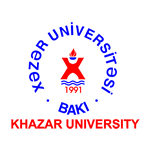
Khazar University is a private educational institution for undergraduate, graduate and professional studies promoting advanced study and research, educational policy and development in the Republic of Azerbaijan.
It is the first University in Azerbaijan composed of multiple independent schoolsç united by the same academic policy and principles, which offer a wide scope of diverse majors in Arts, Humanities and Social Sciences, Architecture, Engineering and Applied Sciences, Economics, Management and Business Administration, Education.
Khazar University is also one of the leading universities in Azerbaijan in terms its relations with industry and has established effective relations with the leading local and international companies. It has about 2000 students and employs about 200 full-time faculty members including renowned experts and scholars, business leaders, lawyers and artists of national and international reputation.
The University’s education profile includes graduate studies including Professional, Ph.D. and Master programs and the most extensive MBA program in Azerbaijan.
From inception Khazar University has seriously focused on the development of international relations as one of the key directions of general development strategy.
The international relations of the university are mainly conducted in the following 4 areas:
- International projects;
- Relationship with foreign universities, typically via cooperation agreements;
- Relations with foreign organizations and companies;
- Foreign students, teaching staff and professors exchange.
Khazar University’s experience in UNIMIG - Migration and Higher Education: Developing Skills and Capacity Tempus Project enabled the team of the Migration Competence Centerto become qualified for new endeavors.
Baku Engineering University - on Pedagogical Basis of Qafqaz University
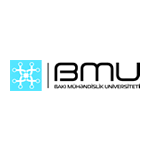
Baku Engineering University (former Qafqaz University (QU)) has been providing the highest standards in education in Azerbaijan for its students since 1993 and has been the top rated private university since 1996. Modeled on the western education program the university has been offering the credit point system since the day it was opened and adopted the ECTS in all departments. QU is the first and only higher educational institution which was nominated with the ISO 9001:2000 Quality Management Certificate and Total Quality Management 100 Certificate of International Arc of Europe in Golden Category in Azerbaijan. QU offers B.A, M.A., M.Sc., MBA and doctoral programs as well as joint M.A. and M.Sc. programs with universities from the USA and Europe. Currently the total student population exceeds 4200. According to 2012 QS World University Ranking system, QU was ranked 64th in the whole world in terms of “attracting international students” and among top 700 universities of the world. QU is the leading university in Azerbaijan in terms of funded projects by EU EACEA, business industry and research. Since 1998 the university has established 9 research centers (Center for International Conflict Studies, Caucasus Research Institute, Center for Energy Research, Centre for Social and Economic Research, etc.) cooperating with world known think tanks on security and conflict resolution topics. Within the framework of EU EACEA Qafqaz University is the first and only university to introduce fully accredited masters program in Migration Studies.
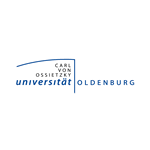
Founded in 1973, the University of Oldenburg (UOL) is a young medium-sized university in Northern Germany. UOL was one of the first German universities to implement the Bachelor-Master structure and today offers 71 full-time and part-time study programmes for degrees at various levels to more than 14,000 students. Study programmes include the humanities, social sciences, economics, law, natural sciences, medicine and information technologies. The university has developed into a highly dynamic research university fostering a strong interdisciplinary research approach across faculties and is driven to become a thought leader of future society concepts. It has a network of over 200 partner universities worldwide. At the top of the University of Oldenburg's agenda is not only the internationalization of research, but also the internationalization of the curriculum.
The institution has considerable expertise in the field of migration studies and related areas of cultural studies, history, politics and education. A number of centres within the university are dealing with migration issues. The Working Group Migration-Gender-Politics involved in this application (represented by Dr. Potts, see below) gathered substantial experience in managing international cooperations in both research and curriculum development projects. Specific expertise is in global migration/migration history, migration and gender, research methods for intercultural contexts and in diversity education and social work. Expertise in cultural studies and additional experience in managing international and interdisciplinary cooperation is brought in through Prof. Butler (see below) as member of the research cluster ‘Transculturality and Cultural mobility’ of the School of Linguistics and Cultural Studies.
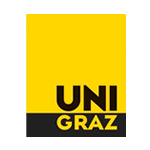
The University of Graz (UNIGRAZ) is an Austrian university under federal public law founded in 1585. It is one of the largest institutions of higher education in Austria (approx. 32.500 students/4.000 employees). The university is organized in six faculties (Faculty of Catholic Theology, Faculty of Law, Faculty of Business, Economic and Social Sciences, Faculty of Environmental, Regional and Educational Sciences, Faculty of Arts and Humanities and Faculty of Natural Sciences). The Law Faculty dates back to the year 1778 and contains the full range of legal disciplines with currently about 4.600 students.
For PROMIG the European Training and Research Centre on Human Rights and Democracy (UNI-ETC) with its expertise on Migration and Human Rights will be involved. The UNI-ETC and the University as a whole can resort to large international research networks and are involved in a number of international projects related to research (FP7 and H2020 projects) and educational projects (Tempus, Erasmus +).
The UNI-ETC was established in 2009 and was the first center of excellence for human rights at an Austrian university. The center is the focal point for human rights at the University of Graz and provides a comprehensive curriculum on human rights and human rights education to students of all faculties. The center is based at the Faculty of Law but nevertheless has a university-wide orientation. In this function the center coordinates the participation of researchers of all faculties engaged in research in the fields of "Human Rights, Democracy, Diversity and Gender" and integrates them in the research cluster "Heterogeneity and Cohesion". Its work is performed in close cooperation with the non-university European Training and Research Centre for Human Rights and Democracy (ETC Graz).
The Centre’s research activities are structured along several main axes: Human Rights Education and University, EU and Human Rights, Information Society/Internet Governance and Human Rights, Globalisation and Human Rights, Human Rights in South East Europe, Migration and Human Rights, Gender and Human Rights, Human Rights and Human Security. With regard to Migration and Human Rights the center and its researchers have a convincing track record of covering emerging issues related in particular to the international and national normative instruments regulating the evolving migration order.
Migration and asylum have been key areas of research of the center since its beginnings and researchers of the center have published widely in the field of Human Rights and Migration also in the framework of large scale FP 7 projects (e.g. FRAME project, WP 11 on migration and asylum).
Additionally, the center conducted various studies for international and national organisations (e.g. Studies for the Human Rights committee of the European Parliament on "Mainstreaming Human and Minority Rights in the EU Enlargement with the Western Balkans" (EXPO/B/DROI/2012/10) and "Effect of Migration Policies on Human Rights in the European Neighbourhood" (EXPO/B/DROI/2010/3); Study for the Austrian Ministry of Science and Research "Human Rights Education in Higher Education").
The University of Graz already was part in the antecessor project “Migration and Higher Education – Building Skills and Capacity (517002-TEMPUS-1-2011-1-GE-TEMPUS-JPCR) funded under the EU TEMPUS programme. The wider objective of the three years project was to transfer skills and competences in the interdisciplinary field of migration studies and to reform and modernize existing modules and programmes in the academic discipline of migration studies in three countries of the European eastern neighbourhood, namely in Georgia, Armenia and Azerbaijan. The main task of the University of Graz was to support Universities in the PC in developing curricula for master programs in migration studies and to establish Migration Competence centers at the respective institutions. Additionally guest lectures have been provided to the students of the established Master programmes in all three PCs.
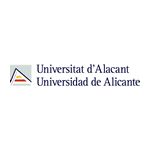
The University of Alicante (UA) was founded in 1979. Being one of the youngest universities in Spain, the UA is also considered one of the most innovative and fastest developing in the whole country. More than 30000 national & 3000 international students are enrolled in 7 Faculties offering more than 50 degrees in all fields of study. The University has more than 70 departments and over 100 research groups in areas of social sciences & law, experimental sciences, technology, humanities, education & health. Its particular field of interest lies within the context of international cooperation and the training of university management staff to aid the integration of countries in transition and develop their international status and networks. The School of Business offers courses to the public in specializing aspects on immigration, public policies, intercultural cooperation, etc. It has established agreements with various institutions in the region, which provide internship opportunities for the students in putting theories into practices.The University of Alicante holds a strong expertise in coordinating EC funded projects (Tempus, Alfa, Edulink, FP 5-7, Erasmus+) aiming to develop and implement master programmes at targeted universities in various fields of studies. The UA was a partner at UNIMIG Project "Migration and Higher Education: Developing Skills and Capacity" with the objective to transfer skills and competences in the interdisciplinary field of migration studies in the ENPI East region, specifically in Armenia, Azerbaijan and Georgia.
World University Service (WUS) Austria
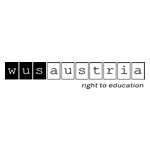
World University Service (WUS) Austria is a politically independent, non-governmental organization committed to the promotion of the human right to education on the basis of academic freedom and university autonomy. Since its establishment in Graz in 1983, WUS Austria has been working on the promotion of this aim in various countries all over the world. Today the organization has a regional focus on the countries of South-Eastern and Eastern Europe and employs an office in Prishtina. While this area remains at the center of WUS Austria’s work, the organization additionally focuses on other regions such as the ACP countries, Northern Africa, the Middle East and the Caucasus and is further interested in cooperation with other countries in the world.
During its 30 years of existence WUS Austria has positioned itself as one of the most important operative partners for enhancing knowledge transfer and comparability in Higher Education between EU and non EU countries. WUS Austria provides operative and technical support and consultancy for a faster, more efficient implementation of the Bologna system and global trends in the Higher Education (HE) sector.
WUS Austria’s MISSION aims at increasing the quality of HE in accordance with European and international standards in order to establish solid and sustainable structures for a strong role of universities in society. Against this background, WUS Austria has implemented change management in accordance with the Bologna principles and UNESCO standards since 2001.
Sustainable development of Higher Education goes beyond the university level. Responding to this, WUS Austria works together with the public sector, economy and society as a whole. We provide experts in various thematic fields (e.g. QA in education, curriculum development, university-industry cooperation and knowledge transfer, research internationalization of HE etc.), used to work in complex and intercultural environments, and cooperate with many different partners such as Higher Education institutions, governmental unit, companies and individual experts on a national, regional, European and international level.
In the last ten years WUS Austria has implemented several projects that aim to anchor Competences and Learning Outcomes in teaching and learning. We also look back on over 20 years of curriculum development in line with the European standards, focusing on Learning Outcomes, student-centred learning and innovative teaching methodologies.



